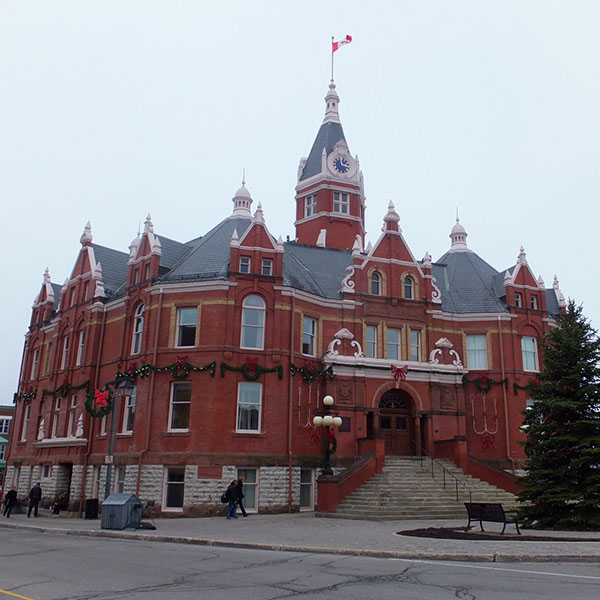

This building was constructed on Old Brewery Bay as a summer home for Stephen Leacock, world-renowned humorist and author. Though Leacock wrote extensively on political science, economics and history during his literary career of four decades, he achieved his greatest success as a humorist .
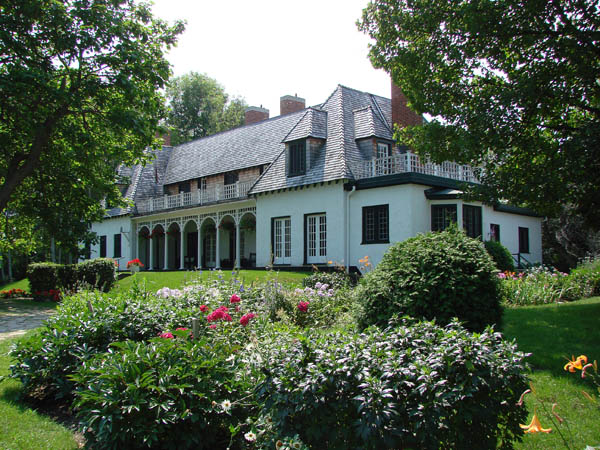
The present courthouse was designed by architect Edward Horsey and constructed by builders Scobell and Tossell in a neoclassical style with a bold two-storey front portico with frieze, cornice, Ionic columns .
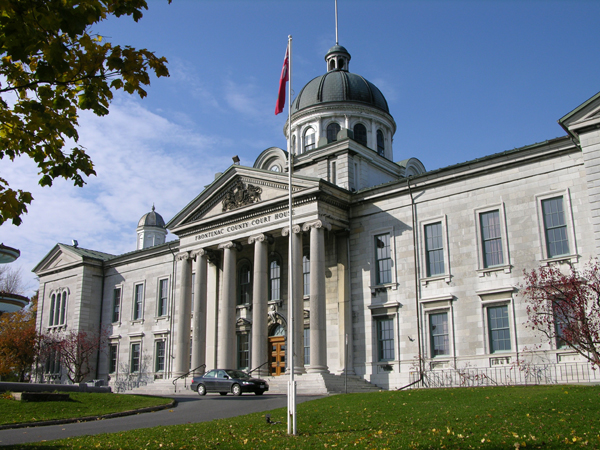
Completed in June 1866, the first meeting of the Peel County Council was held in January 1867. Serving as Peel County's judicial and administrative centre until 1973, the courthouse was then leased to the municipality until 1980. It now serves as a museum and art gallery .
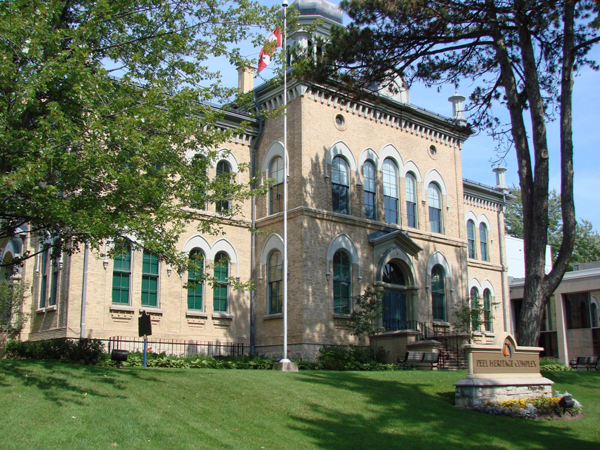
Willowbank is significant as a surviving mansion of the British colonial era in Canada that reflects the ideals of both classical revivalism and the picturesque tradition. It is also significant for its association with Alexander Hamilton, its original owner .
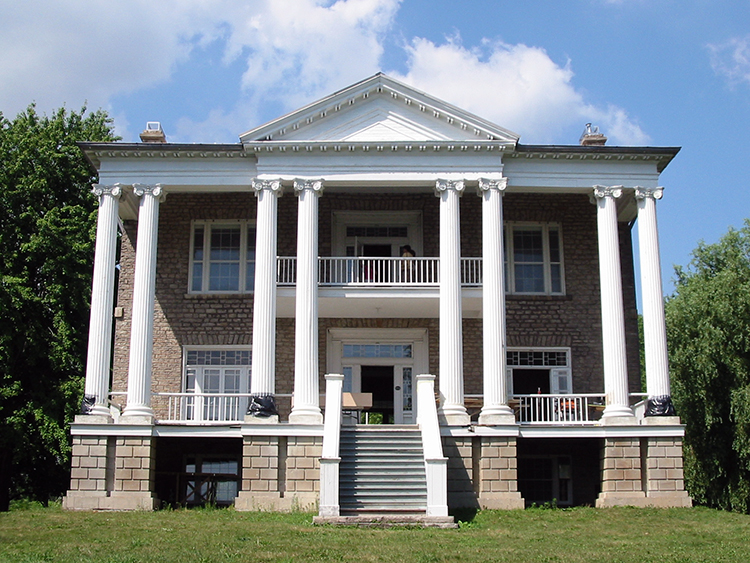
The Pinhey estate and house are run as a passive recreation area and historic site. The two-and-a-half storey masonry Georgian house contains an 1822 log house, an 1825 stone parlour wing, an 1841-42 central hall/kitchen wing and an 1847-49 south wing .
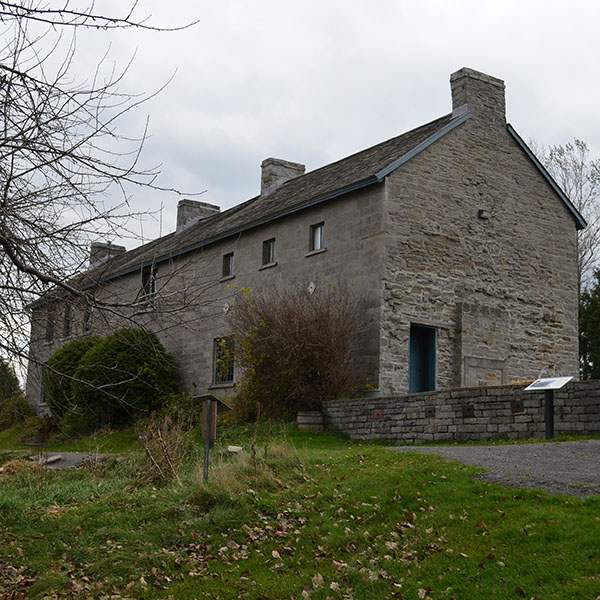
Ruthven stands as a rare surviving example of that romantic combination of classical architecture and picturesque landscape that characterized country estates of the late 18th and early 19th centuries .
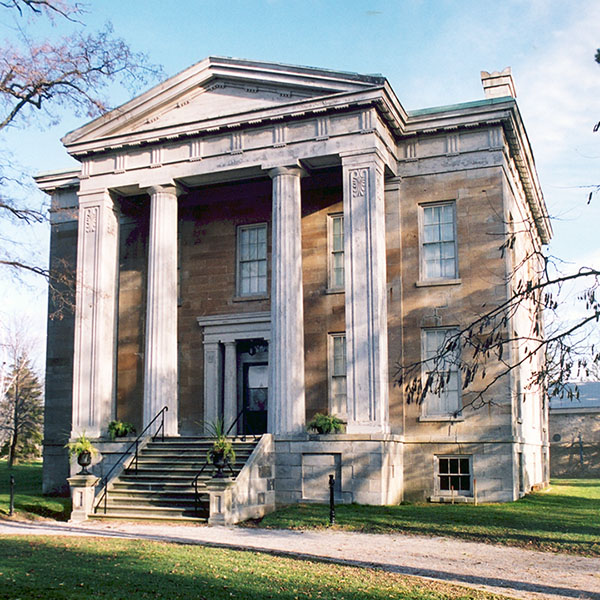
This building was constructed on Old Brewery Bay as a summer home for Stephen Leacock, world-renowned humorist and author. Though Leacock wrote extensively on political science, economics and history during his literary career of four decades, he achieved his greatest success as a humorist .

St. John's Church is associated with the early settlement of the Scott's Mills or Scott's Plains area (now the City of Peterborough) by over 200 Irish immigrants in 1825.
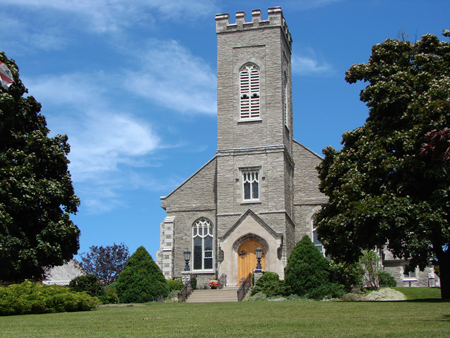
On September 7, 1860, the Prince of Wales officially opened the building, named for his mother Queen Victoria. The building housed a number of functions including a court room, judge's chambers, a concert hall, municipal and county administrative offices .
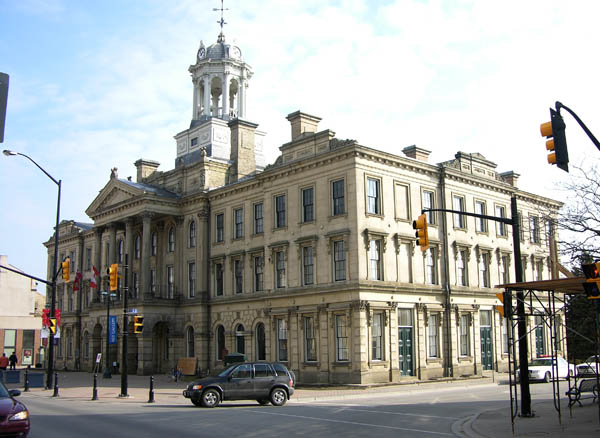
Woodchester Villa was built in 1882 for Henry James Bird, owner of a local woollen mill. It was named after the English village of Woodchester, where he was born, near Stroud in the west of England in 1842 .
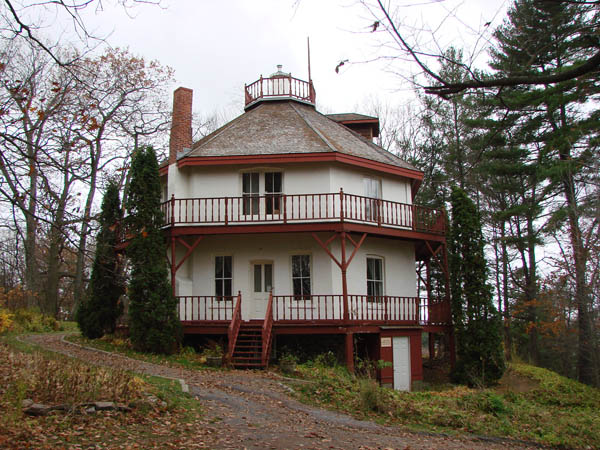
One of Ramsay Township's oldest churches, Auld Kirk Presbyterian Church is associated with the early Scottish settlers. It was used by members of the Established Church of Scotland and Presbyterian settlers in nearby townships .
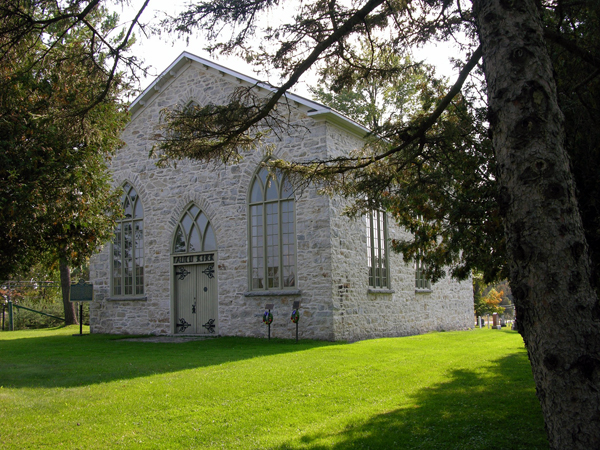
Built as a symbol of Belleville's growth and prosperity and as an expression of civic pride and confidence in the future, this building was one of a few civic complexes completed during the economic depression of 1873 .
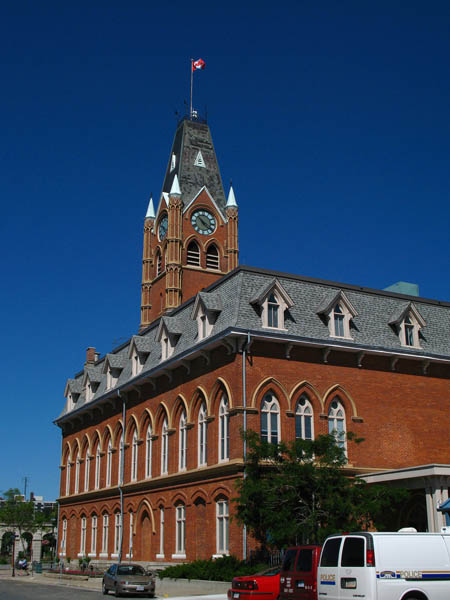
The present courthouse was designed by architect Edward Horsey and constructed by builders Scobell and Tossell in a neoclassical style with a bold two-storey front portico with frieze, cornice, Ionic columns .

This house was built by Allan Macpherson, a leading local businessman, militia leader, magistrate and Napanee's first postmaster, in proximity to his general store on Dundas Street. Sir John A. MacDonald, a relation of the Macpherson family, was a frequent guest at the house .
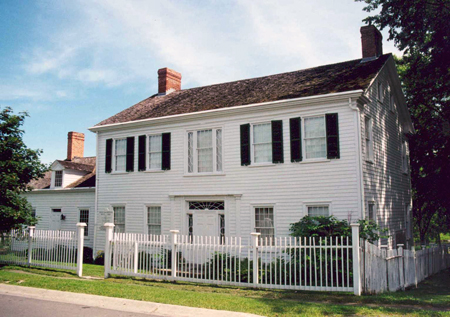
The entire mill complex is one of a few surviving Ottawa Valley textile manufacturing complexes from the late 19th century. In 1988, the Mississippi Valley Textile Museum acquired the Annex of the mill complex for use as a museum .
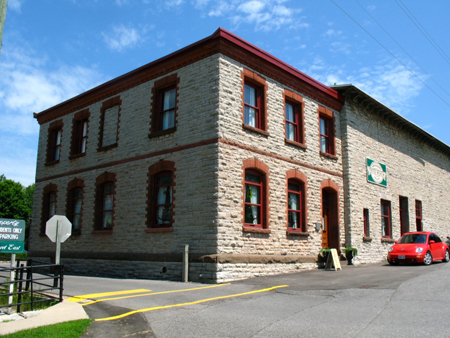
The core of the existing church was built of stone to the design of Kingston architect Thomas Rogers in 1825. The building was substantially enlarged in the 1840s with the addition of a nave bay, a large clock tower and an entrance portico comprised of a pediment supported by four columns .
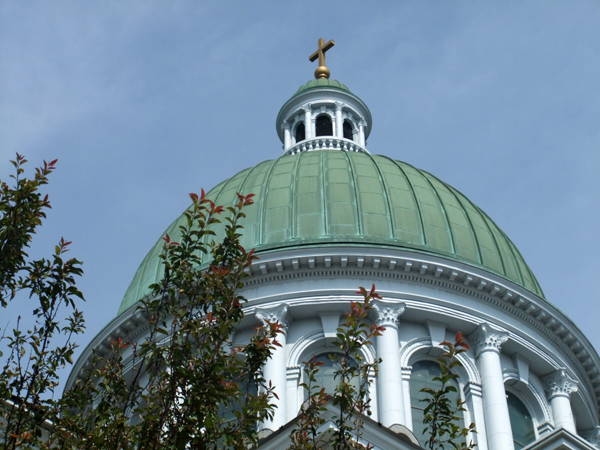
Benares is associated with the early settlement of the north shore of Lake Ontario. The house, home of Captain James Harris, is located on one of the earliest settled sites in the village of Clarkson's Corners (later shortened to Clarkson) .
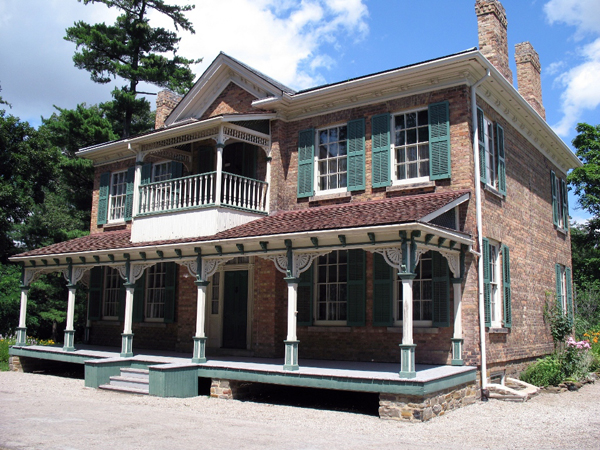
The building is associated with the Gooderham family – notably George Gooderham, eldest son of William Gooderham, the original founder of the successful distilling company .
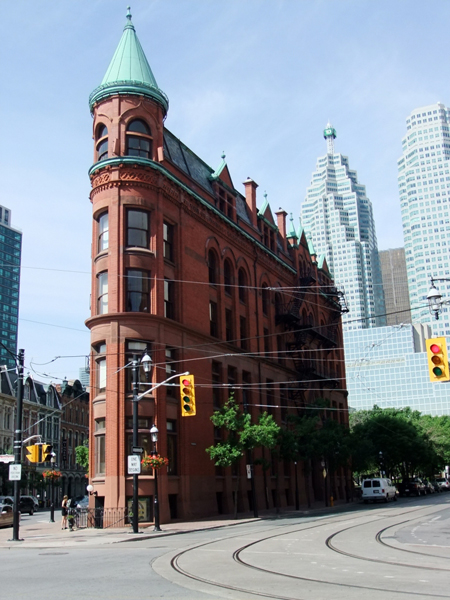
Completed in June 1866, the first meeting of the Peel County Council was held in January 1867. Serving as Peel County's judicial and administrative centre until 1973, the courthouse was then leased to the municipality until 1980. It now serves as a museum and art gallery .

The design of the church is in the Byzantine style, which is very unusual for an Anglican church. St. Anne's is constructed of concrete and brick and characterized by a cruciform plan with a distinctive central dome .
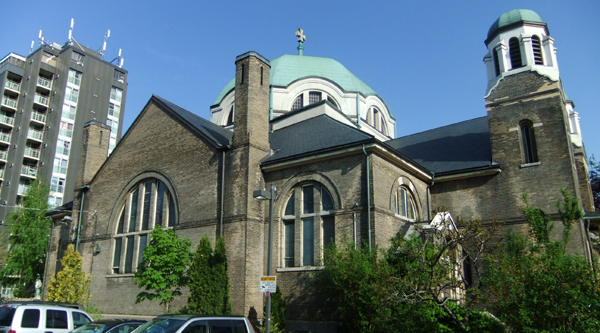
The Sharon Temple is associated with the Children of Peace, a breakaway sect of the Society of Friends or Quakers, founded by David Willson. Square in plan and painted white with green trim, the Temple of Peace is a unique frame construction building comprising three tiers .
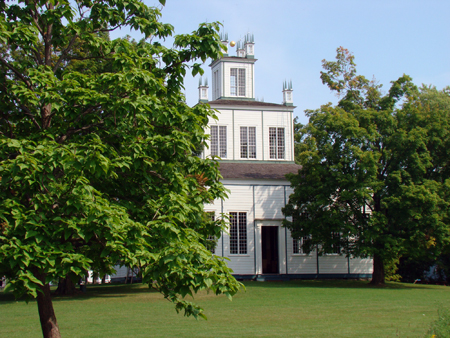
This building is associated with 19th-century judicial, governmental and administrative development in Ontario and is the third and only surviving courthouse erected for the former Niagara District .
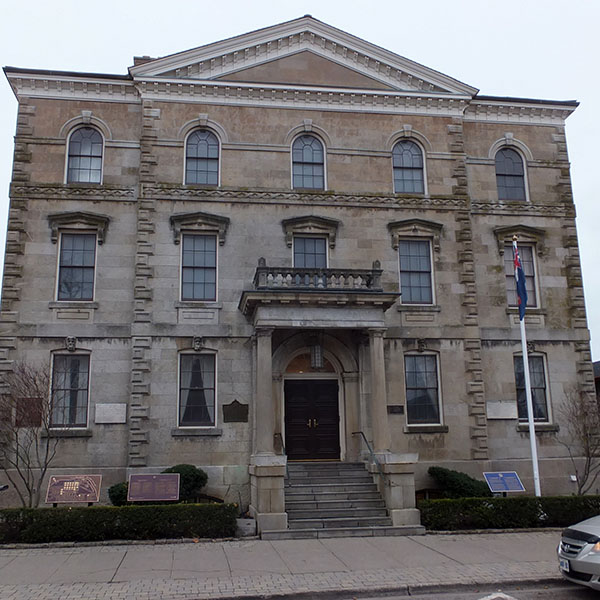
The Battleground Hotel, the oldest building on the property, is characterized as a classical revival style building with a temple façade, eave returns and pilasters framing the entrance .
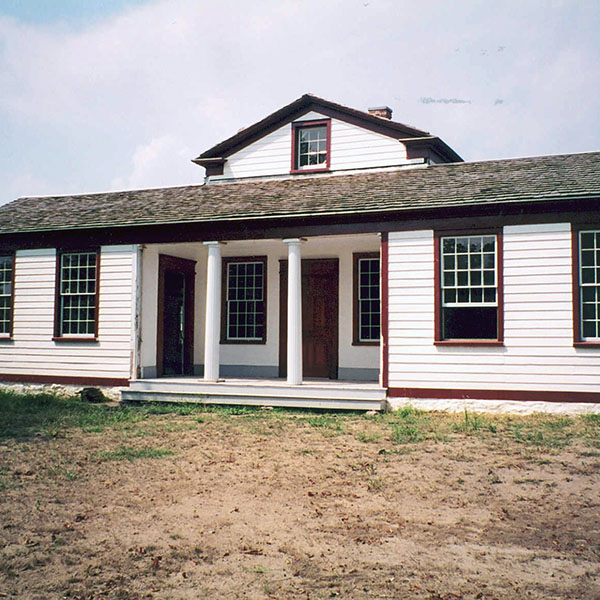
This building is associated with 19th-century judicial, administrative and governmental development in Ontario. Designed in the neoclassical style by prominent architect Kivas Tully .
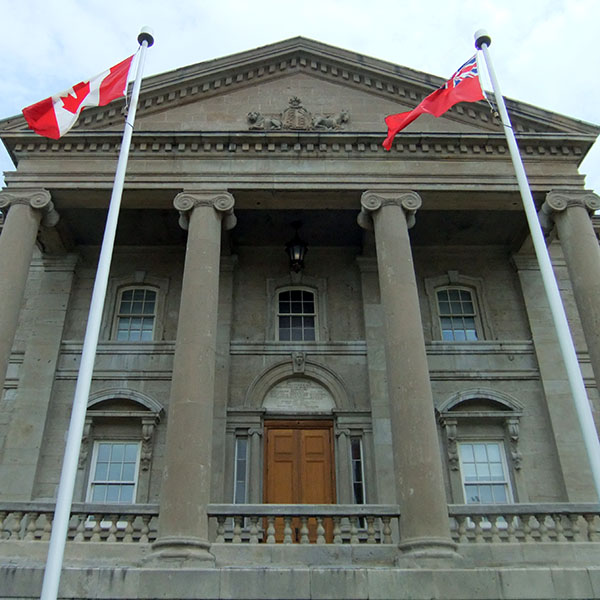
Willowbank is significant as a surviving mansion of the British colonial era in Canada that reflects the ideals of both classical revivalism and the picturesque tradition. It is also significant for its association with Alexander Hamilton, its original owner .

Conçu par le ministère fédéral des Travaux publics dans un mélange de styles apogée victorien, second empire et roman de Richardson, ce bâtiment, constitué en grande partie de briques, se caractérise par des fondations en pierre élevées fortement bossagées.
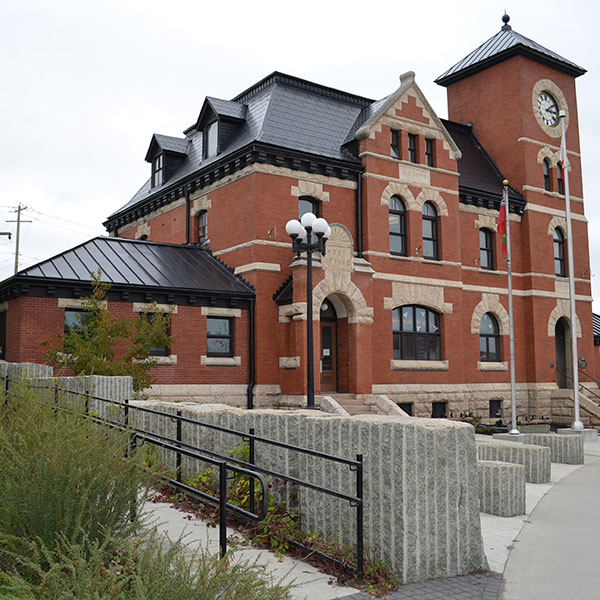
This station at North Bay was built in 1903 by the Canadian Pacific Railway (CPR). Once an important hub of transnational rails, the North Bay CPR Station was home to the district divisional offices .
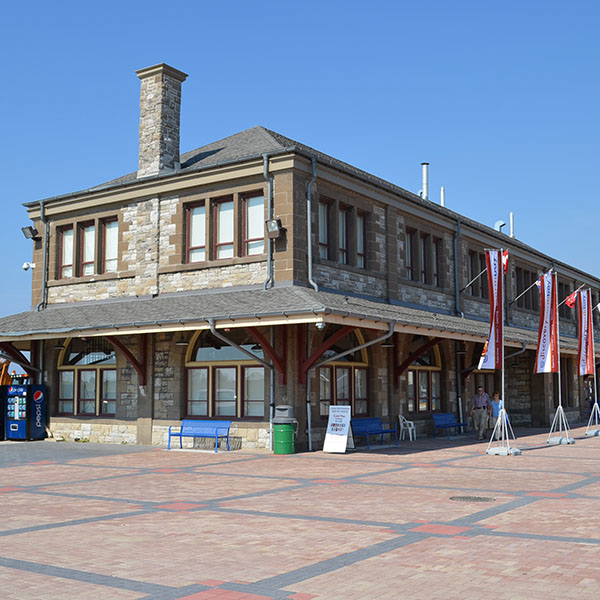
Built in 1910 for the Timiskaming and Northern Ontario Railway, the Cobalt Station is associated with the early development of rail transportation and settlement in northern Ontario .
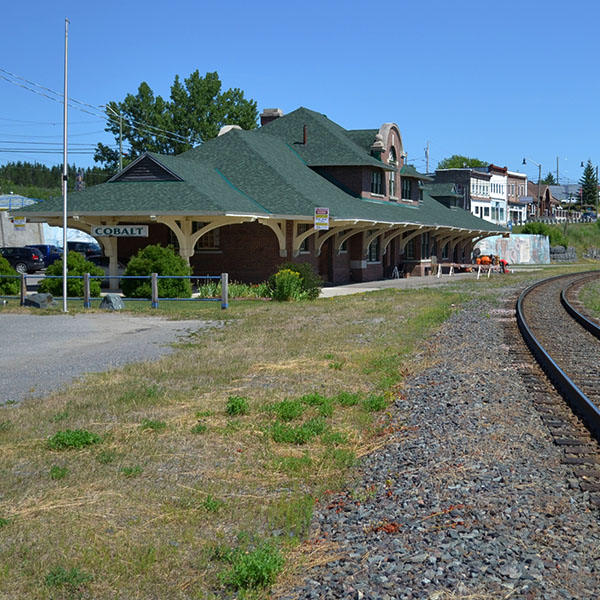
Sault Ste. Marie was elevated to a diocese in 1904 and the church was selected as a diocesan Cathedral. In 1913, the Jesuits who had served the parish church and then the Cathedral were replaced by the secular clergy. It was renamed the Cathedral of Precious Blood in 1936 .
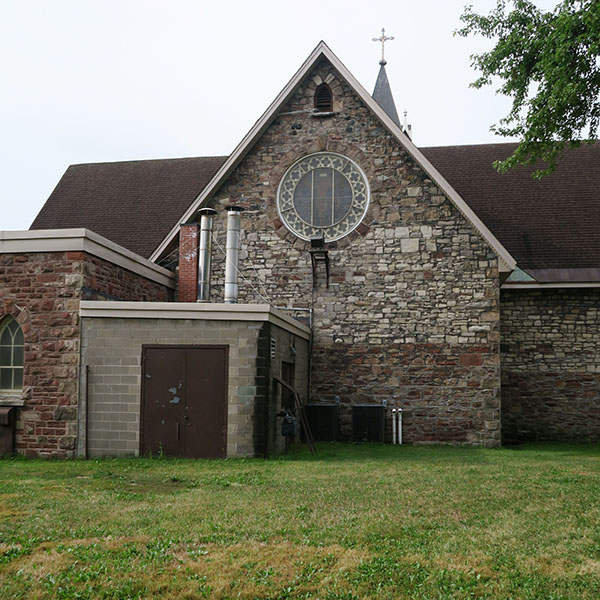
The Pagoda was designed by local architect H. Russell Halton. Its design recalls the eclectic architectural motifs and forms used in many English gardens and parks of the late 18th and 19th centuries .
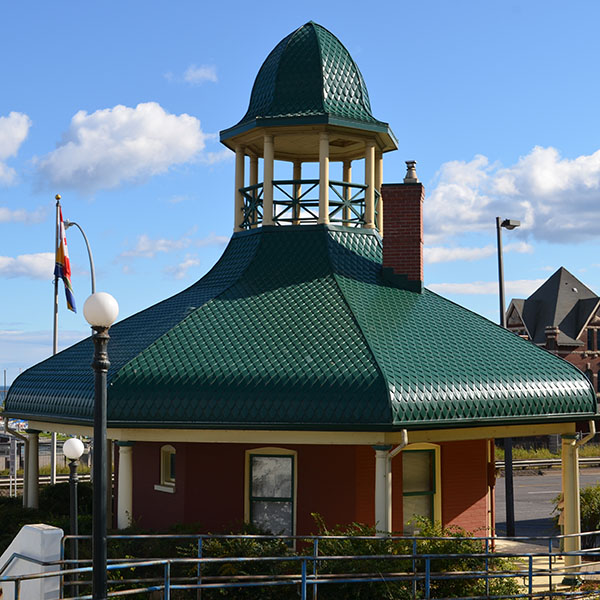
Built for the Central Canada Exhibition Association, and known more recently as the Manufacturers' Building and the Cattle Castle, the pavilion is the oldest surviving Canadian example of a large-scale exhibition building and the only one surviving from the 19th century .
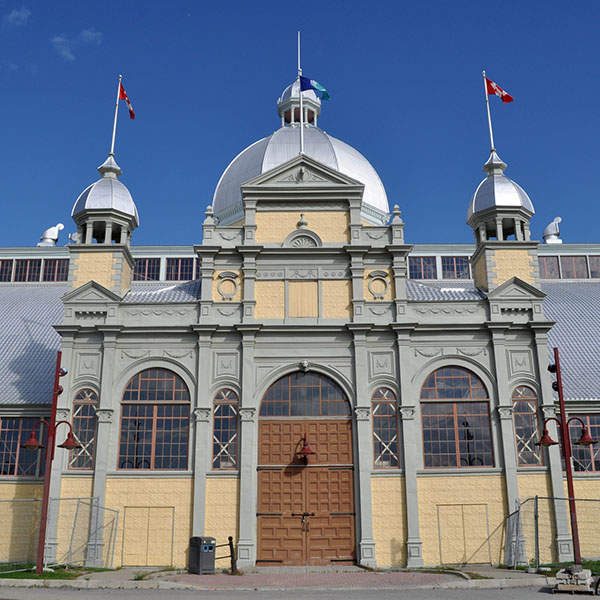
Although not built as originally designed, the "rural Early English" spirit of the design was retained in the final product. Erected on a redesigned and higher foundation, the proposed transept and tower were replaced by a small belfry at the crossing of the nave roof and chancel .
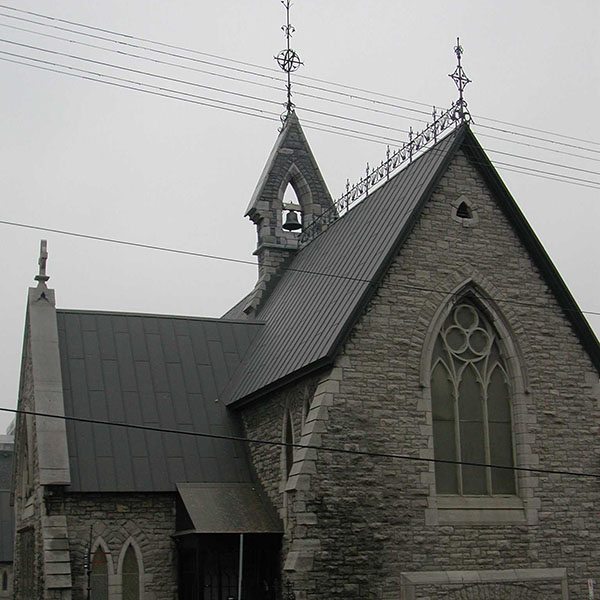
Located on LeBreton Flats, it featured a novel use of water power to operate the pumps rather than the more traditional steam-driven engines used in Hamilton .
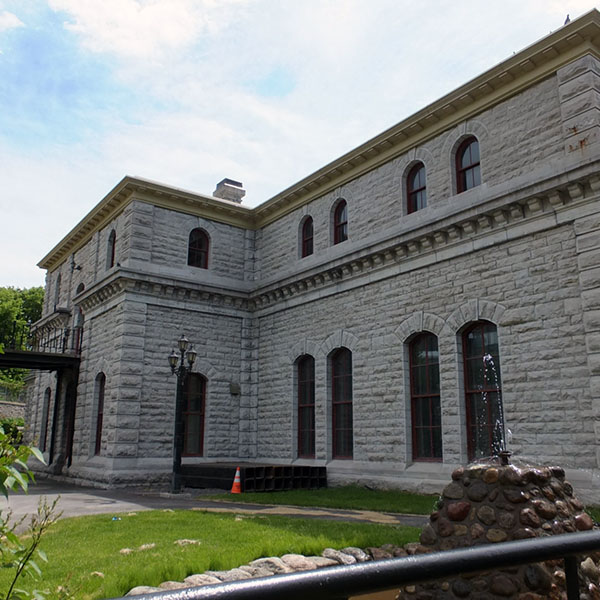
The Pinhey estate and house are run as a passive recreation area and historic site. The two-and-a-half storey masonry Georgian house contains an 1822 log house, an 1825 stone parlour wing, an 1841-42 central hall/kitchen wing and an 1847-49 south wing .

The Assumption Church has been associated with a Jesuit Huron mission at La Pointe du Montréal, the parish of L'Assumption du Détroit, since 1761. The current church replaced an earlier one, Notre Dame de L'Assomption, built on a nearby site in 1785 .
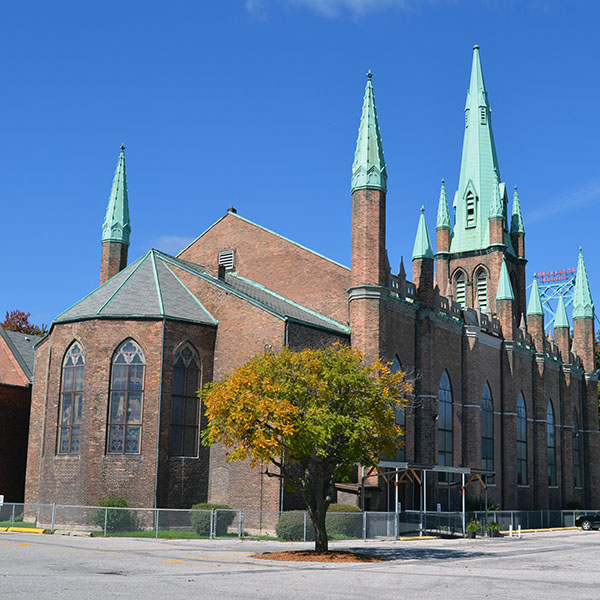
Dundurn Castle is located on lands formerly owned and occupied by Richard Beasley (1761-1842), merchant and politician, who settled here in 1793. Although the Castle incorporates the former Beasley farmhouse, it is now closely associated with its builder Sir Allan Napier MacNab .

Designed with Gothic detailing, the courthouse displays a classical compositional form with a central pavilion and two side wings in the form of prominent octagonal towers at each corner. It is believed that the courthouse was partially modelled after the ancestral home of Thomas Talbot .
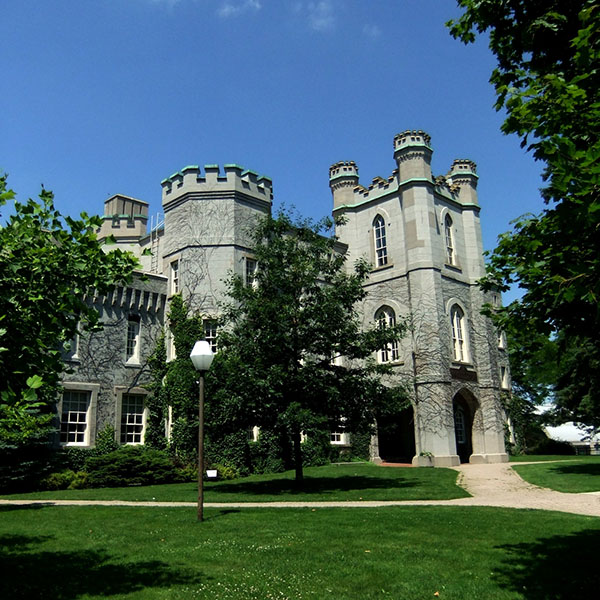 Middlesex County Courthouse" />
Middlesex County Courthouse" />
Ruthven stands as a rare surviving example of that romantic combination of classical architecture and picturesque landscape that characterized country estates of the late 18th and early 19th centuries .

The new City Hall on the site of Stratford's former town hall marked a notable addition to the late-19th-century streetscape. Under threat of demolition in the 1960s, and again in the early 1970s, the building was saved by a citizens group .
